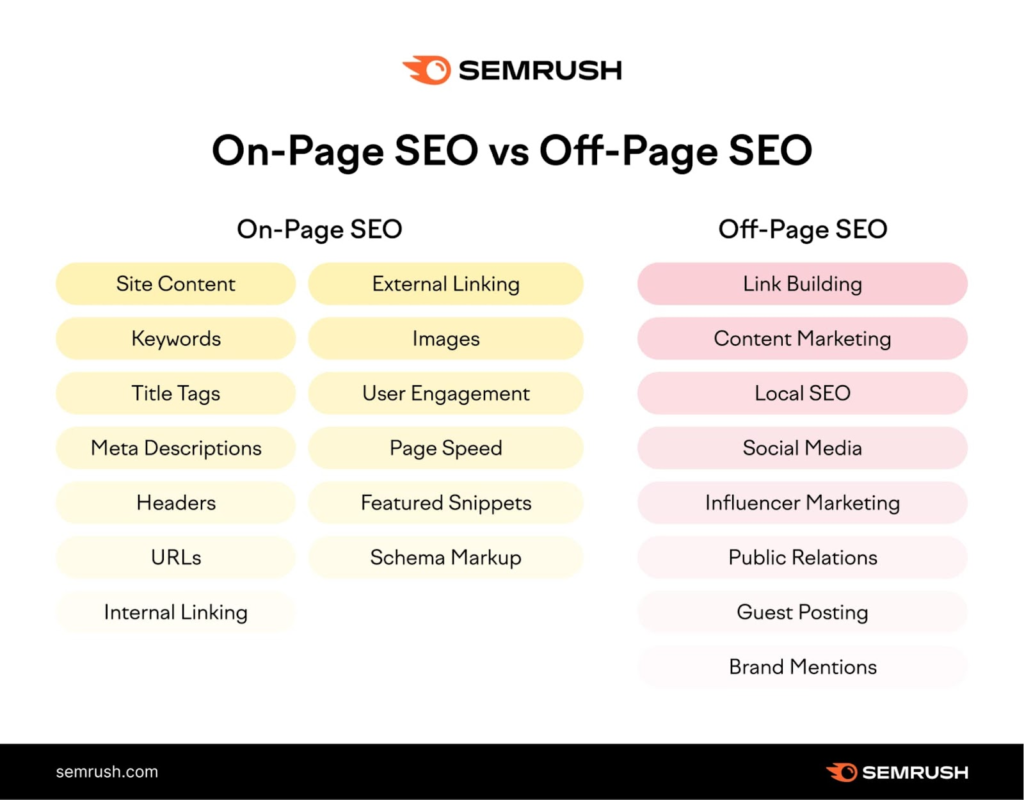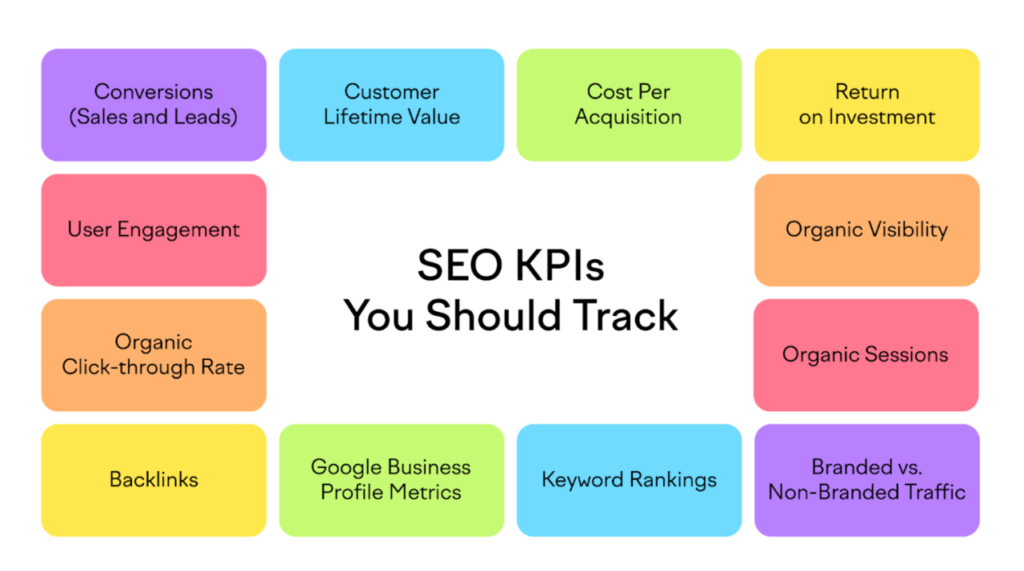Search Engine Optimization (SEO) is the process of optimizing your website to increase its visibility in search engine results pages (SERPs) for relevant queries. It involves various strategies and techniques aimed at improving organic (non-paid) traffic to your website. Understanding SEO basics is essential for any business or individual looking to enhance their online presence and attract more visitors.

Getting Started with SEO Basics
To begin your SEO journey, it’s crucial to understand how search engines work. Search engines like Google use algorithms to analyze and rank websites based on factors such as relevance, quality, and authority. These algorithms are designed to deliver the most relevant and useful results to users based on their search queries.
Keyword Research: Keyword research forms the foundation of SEO. It involves identifying the specific words and phrases (keywords) that your target audience is using to search for information related to your products or services. Tools like Google Keyword Planner, SEMrush, and Ahrefs can help you discover relevant keywords, analyze their search volume, and competition level, and understand user intent behind those queries.
Understanding User Intent: User intent refers to the reason behind a user’s search query. There are generally four types of search intent: informational (seeking information), navigational (looking for a specific website), transactional (ready to make a purchase), and commercial investigation (researching products/services before making a decision). Aligning your content with the intent behind these searches is crucial for SEO success.

1. On-Page SEO Essentials
On-page SEO focuses on optimizing individual web pages to improve their search engine rankings. Key elements of on-page SEO include:
Title Tags: Title tags are HTML elements that specify the title of a web page. They appear as clickable headlines in search engine results. Optimizing title tags with relevant keywords and ensuring they are compelling and relevant to the content on the page can improve click-through rates and SEO performance.
Meta Descriptions: Meta descriptions are summaries that appear below the title tag in search engine results. While they don’t directly impact rankings, well-written meta descriptions can improve click-through rates by providing users with a concise preview of what the page offers. Include relevant keywords and a clear call to action to encourage clicks.
Heading Tags (H1, H2, H3): Heading tags are used to structure content hierarchically. The H1 tag represents the main heading of the page (usually the title), while the H2 and H3 tags are used for subheadings. Incorporating relevant keywords in heading tags not only improves readability but also signals the importance of the content to search engines.
URL Structure: Creating SEO-friendly URLs that are descriptive and include relevant keywords can improve both user experience and search engine rankings. Avoid using complex or lengthy URLs with unnecessary parameters.
Content Optimization: High-quality, informative content is critical for SEO. Write content that addresses the needs and interests of your target audience, incorporating relevant keywords naturally. Aim for comprehensive, well-researched content that provides value and answers users’ queries effectively.

2. Technical SEO Fundamentals
Technical SEO focuses on optimizing the technical aspects of your website to improve its crawlability, indexability, and overall performance in search engines. Key technical SEO elements include:
Site Structure and Navigation: Organize your website’s structure logically to make it easy for users and search engines to navigate. Use internal linking to establish a hierarchical structure that helps distribute link equity throughout your site.
Mobile Optimization: With the majority of users accessing the internet via mobile devices, optimizing your website for mobile-friendliness is crucial. Ensure your site is responsive and loads quickly on all devices to provide a seamless user experience.
Site Speed Optimization: Page loading speed is a significant ranking factor and affects user experience. Optimize images, minify CSS and JavaScript files, leverage browser caching, and consider using a content delivery network (CDN) to improve page speed.
Schema Markup: Implementing schema markup (structured data) helps search engines better understand the content of your pages, which can lead to enhanced search results with rich snippets (such as star ratings, prices, and event details).
3. Off-Page SEO Techniques
Off-page SEO involves activities performed outside of your website to improve its authority, relevance, and popularity. Key off-page SEO strategies include:
Link Building: Acquiring high-quality backlinks from reputable websites is essential for building authority and improving search engine rankings. Focus on earning natural backlinks through guest blogging, content partnerships, and outreach to influencers and industry experts.
Social Media Engagement: While social media signals themselves may not directly impact search rankings, active engagement on social platforms can help amplify your content, attract more visitors to your website, and indirectly contribute to SEO success.
Online Reputation Management: Monitoring and managing your online reputation, including reviews and mentions, can influence your website’s credibility and trustworthiness in the eyes of both users and search engines.

4. Measuring SEO Success
Measuring the effectiveness of your SEO efforts is crucial for optimizing and improving your strategy over time. Key metrics and tools for measuring SEO success include:
Google Analytics: Track website traffic, user behavior, conversions, and other key metrics using Google Analytics. Set up goals to monitor specific actions users take on your site, such as form submissions or product purchases.
SEO Tools: Utilize tools like Ahrefs, SEMrush, Moz, and Google Search Console to monitor keyword rankings, analyze backlinks, identify technical issues, and gain insights into your website’s overall SEO performance.
Performance Reports: Regularly review and analyze performance reports to identify trends, opportunities for improvement, and areas where adjustments to your SEO strategy may be needed.
5. Advanced SEO Strategies
Advanced SEO techniques go beyond the basics to optimize your website for competitive search results and emerging trends:
Local SEO Optimization: If your business serves a specific geographic area, optimize your website for local search results. Claim and optimize your Google My Business listing, target location-based keywords, and encourage customer reviews and local citations.
Voice Search Optimization: With the rise of voice-activated search assistants like Siri and Alexa, optimize your content for voice search queries. Focus on natural language and long-tail keywords that reflect how people speak when using voice search.
E-A-T (Expertise, Authoritativeness, Trustworthiness): Google places a high emphasis on E-A-T when evaluating website quality. Establish your expertise in your industry, build authority through high-quality content and backlinks, and demonstrate trustworthiness by providing accurate and reliable information.
6. SEO Best Practices and Trends
Staying updated with SEO best practices and emerging trends is essential for maintaining and improving your website’s search visibility:
Continuous Learning: Follow reputable SEO blogs, attend webinars, and participate in industry forums and communities to stay informed about the latest SEO developments and best practices.
Algorithm Updates: Keep an eye on major search engine algorithm updates (such as Google’s core updates) and adapt your SEO strategy accordingly. Understanding how these updates impact search rankings and user behavior can help you make informed decisions.
User Experience (UX): Prioritize user experience by ensuring your website is easy to navigate, loads quickly, and provides valuable, relevant content that meets the needs of your target audience.
Conclusion
In conclusion, SEO is a dynamic and multifaceted discipline that requires ongoing learning, experimentation, and adaptation. By implementing these beginner-friendly SEO tips and strategies—from understanding how search engines work and conducting keyword research to optimizing on-page and technical SEO elements, building high-quality backlinks, and measuring performance—you can establish a solid foundation for improving your website’s visibility and attracting more organic traffic. Stay committed to refining your SEO efforts based on data-driven insights and industry best practices to achieve long-term success in the competitive digital landscape.




Smart advices , thanks .